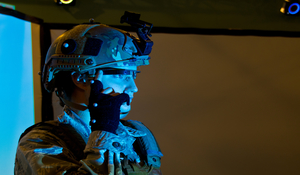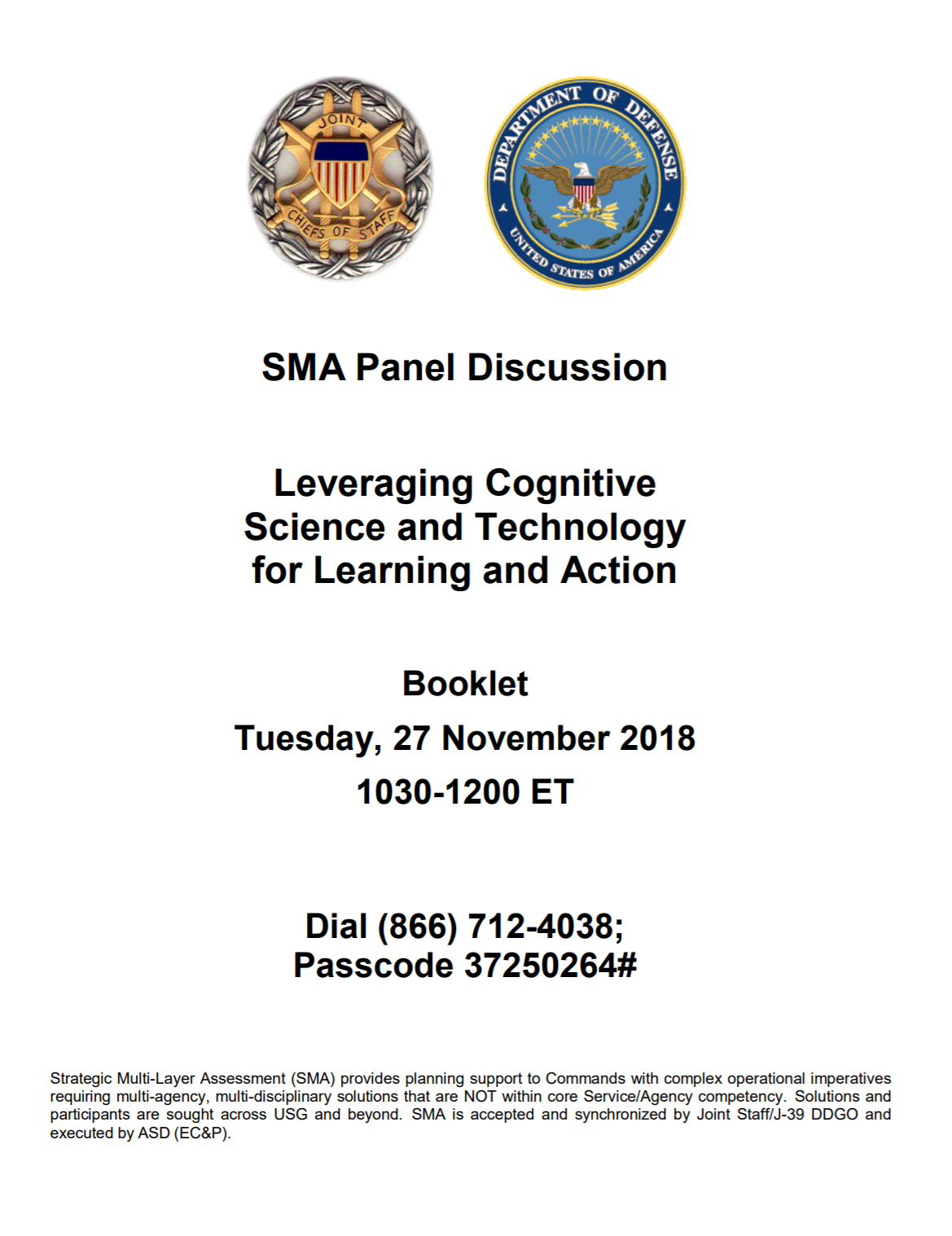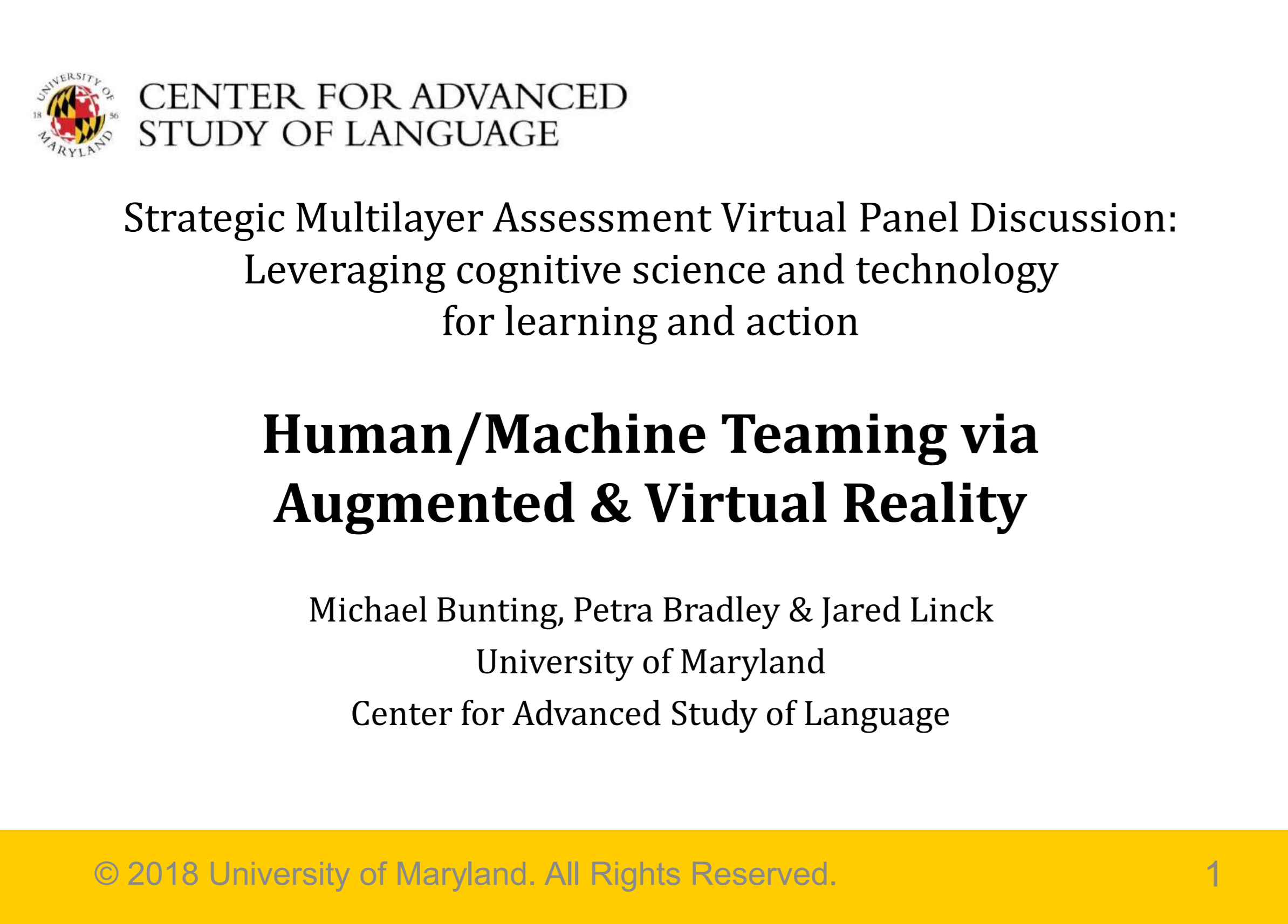SMA Panel Discussion- Leveraging Cognitive Science and Technology for Learning and Action

“SMA Panel Discussion- Leveraging Cognitive Science and Technology for Learning and Action”
Speakers: Lyle, D. (Air Education and Training Command [AETC] and Air University), Bunting, M. (University of Maryland Center for Advanced Study of Language [UMD CASL]); Bradley, P. (UMD CASL); Linck, J. (UMD CASL); Gluck, K. (Air Force Research Laboratory [AFRL] Cognitive Science, Models, and Agents Branch); Vicars, P. (Pilot Training Next); Sheets, T. (Pilot Training Next); Stricker, A. (Air University).
Date: 27 November 2018
Speaker Session Preview
SMA hosted a panel discussion as a part of its SMA General Speaker Series. Presenters included Lt Col Dave Lyle (Air Education and Training Command [AETC] and Air University), Dr. Michael Bunting (University of Maryland Center for Advanced Study of Language [UMD CASL]), Dr. Petra Bradley (UMD CASL), Dr. Jared Linck (UMD CASL), Dr. Kevin Gluck (Air Force Research Laboratory [AFRL] Cognitive Science, Models, and Agents Branch), Lt Col Paul Vicars (Pilot Training Next [PTN]), Maj Travis Sheets (PTN), and Dr. Andy Stricker (Air University).
To begin the presentation, Lt Col Lyle explained the purpose of the panel discussion: to discuss current projects and research focused on blending cognitive science and technology to improve learning and performance. Dr. Bunting proceeded to provide further details regarding CASL’s program on human-machine teaming, virtual reality, and overcoming information overload. Dr. Bradley went into further detail about CASL’s use of augmented and virtual reality to create visualizations of data for a Department of Defense client and mitigate cognitive overload. Dr. Linck then discussed CASL’s development of virtual reality learning environments specifically for foreign language learning purposes.
Next, Dr. Gluck discussed AFRL’s training division, which aims to accelerate, enhance, and reduce the costs of training to achieve and sustain combat readiness, and provided some examples of research areas within the training division. Lt Col Vicars then presented Pilot Training Next’s PTNv1 program (a program which is designed to integrate new and emerging technologies and individualize access to learning), as well at its plans for PTNv2. Maj Sheets added a few comments regarding the PTNv1 program during the Q&A portion of the telecon. To conclude, Dr. Stricker spoke about Air University’s immersive Mars expedition VR simulation, in which users can work together as teams, solve problems, and prepare for a variety of real settings/situations.
To access an audio recording of this presentation, please email Ms. Nicole Omundson (nomundson@nsiteam.com).


Comments